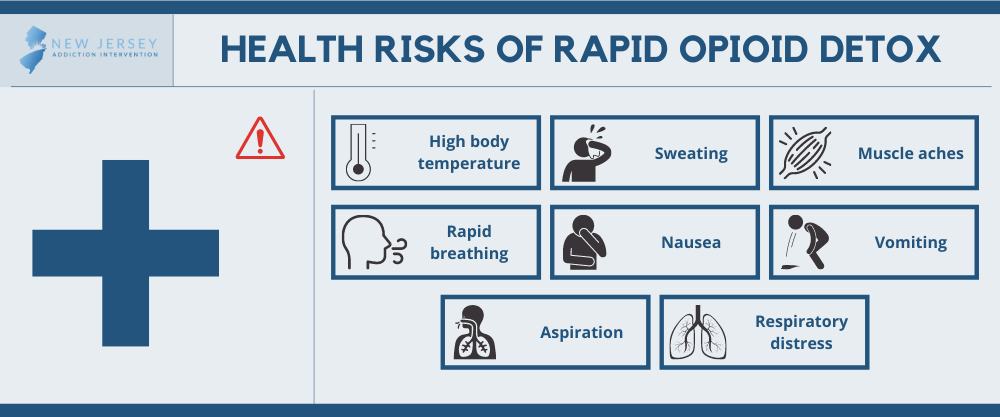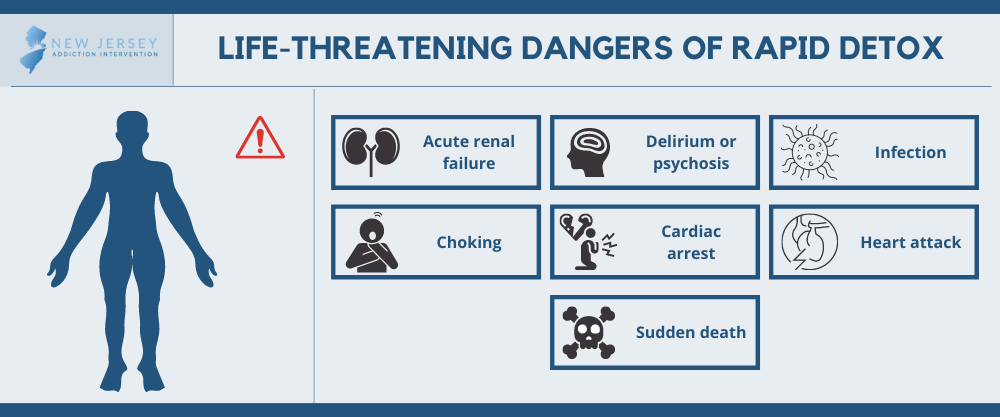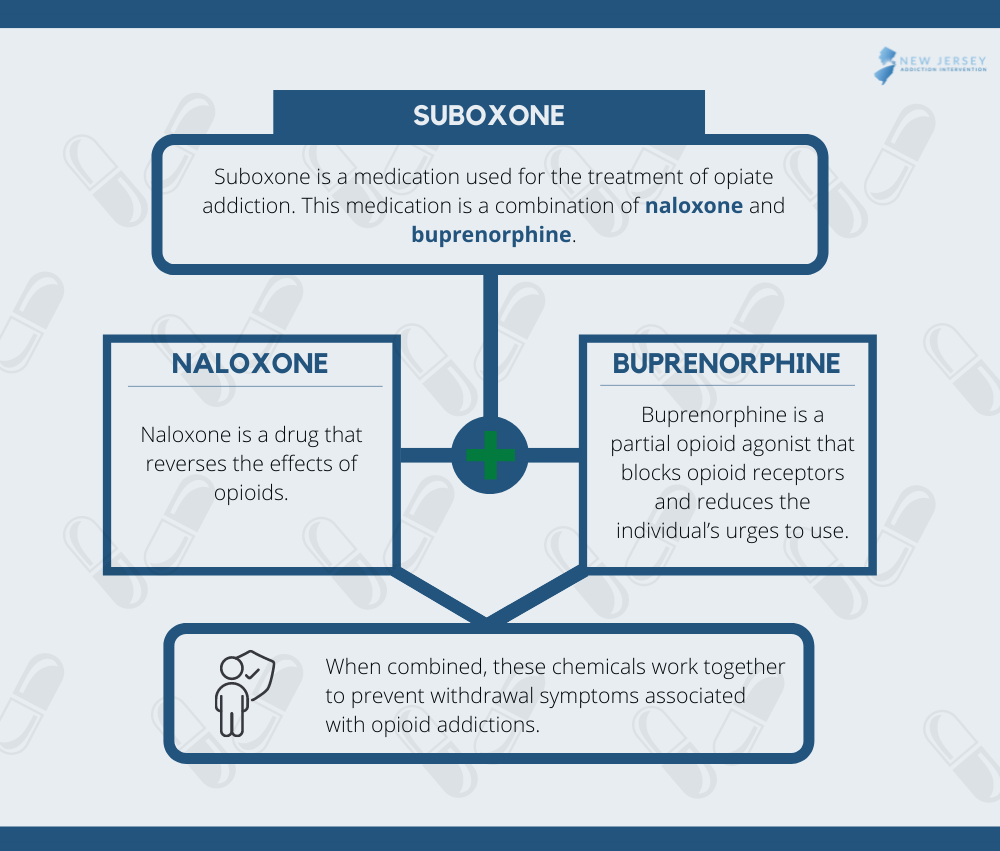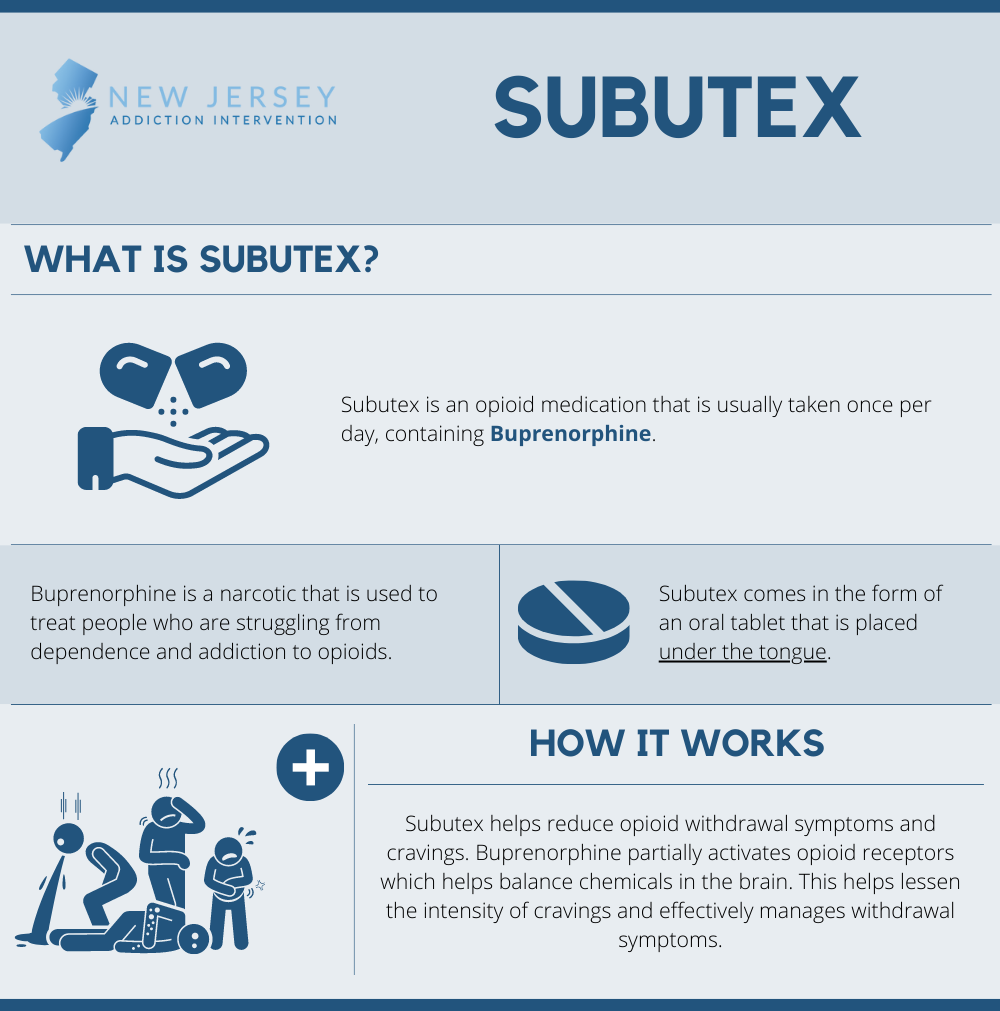Opioid use disorder affects more than 16 million people worldwide and 2.1 million in the United States.[1] Even though the opioid crisis is a leading public health concern in the nation, very few people who need treatment actually seek it. There are many reasons for this ranging from the cost of treatment to the denial of having a problem with opioids in the first place. However, one of the top reasons why people who are addicted to opioids are reluctant to seek help is because of the painful, flu-like withdrawal symptoms that appear when they try to sober up.
Medical professionals and addiction experts alike have tried many different approaches to treat opioid withdrawal. One approach, known as rapid detox, was created with the intent to eliminate the experience of opioid withdrawal altogether by putting patients under general anesthesia and flushing opioids out of their system. But how safe is rapid detox, and it is actually a good idea? Let’s take a look.
What is Rapid Detox?
Rapid detox is a form of opiate detox that was introduced in the 1980s and involves anesthesia-assisted care. This approach aims to help patients complete the opioid withdrawal process as quickly as possible. While opioid detox takes anywhere from 1-2 weeks, rapid detox aims to achieve the same results in 24-48 hours. It also aims to reduce the physical and mental pain associated with opioid withdrawal.
Although this may sound appealing to people who struggle with opioid addiction, the procedure is risky. Patients must go to an inpatient facility where they are put under general anesthesia. Once the anesthesia kicks in, naloxone is administered to help flush opioids out of the system. Since patients are not conscious, they do not feel the physical symptoms of withdrawal. However, experts agree that the risks greatly outweigh the benefits. In fact, the American Society of Addiction Medicine does not condone rapid detox due to the risk of life-threatening health events.[2]
Health Risks of Rapid Opioid Detox
Detox takes a serious toll on the body, and even though individuals are under general anesthesia, the body still suffers. Patients may experience:

- High body temperature
- Sweating
- Muscle aches
- Rapid breathing
- Nausea and vomiting
- Aspiration
- Respiratory distress
After the anesthesia wears off, there is no guarantee that all withdrawal symptoms will be gone. Some patients will experience symptoms of opioid withdrawal for several days afterward, increasing the temptation to return to drug use or stop treatment early.
Moreover, studies have found that rapid detox is not an effective treatment approach for opioid use disorder. Many patients who detox this way will relapse and begin using opioids again.[3]
Life-Threatening Dangers of Rapid Detox
Sadly, there have been several deaths and severe adverse events associated with ultra-rapid detox. One study published by the CDC revealed that among 75 patients who went through anesthesia-assisted opioid detox, two died and five experienced severe health effects that required hospitalization.[4]

Potential dangers of rapid opioid detox include:
- Acute renal failure
- Delirium or psychosis
- Infection
- Choking
- Cardiac arrest
- Heart attack
- Sudden death
Mental Health Challenges of Rapid Detox
Many people who are addicted to opioids also struggle with mental illness. Both mental illness and opioid abuse can benefit from detox processes that withdraw opioids from the system at a slow, gradual pace. People with mental illness who go through rapid detox may be more likely to experience psychosis, delirium, and suicidal thoughts. They may also be less likely to complete treatment and more likely to relapse.
How to Safely Detox from Drugs and Alcohol
The safest way to detox from opioids is using an approach known as medical detox or medically-assisted detox. This approach involves using FDA-approved treatment medications such as methadone or buprenorphine to slowly detox individuals off of opioids. It also focuses on the whole person–not just the physical symptoms of withdrawal. Medical detox may include support groups, therapy sessions, and skill development to help individuals get started on their recovery journey.
Some of the most popular opioid detox medications are Suboxone (buprenorphine/naloxone) and Subutex (buprenorphine). Patients can begin taking these 12-24 hours after their last dose of opioids. Suboxone and Subutex help reduce opioid withdrawal symptoms and cravings while stabilizing the body. They can safely and effectively detox individuals from opioids.


Find Help Today
Most patients who relapse after detox do so shortly after they complete their detox program. As a result, it is essential to follow up detox with a comprehensive inpatient or outpatient rehab program. A complete substance abuse treatment program can teach individuals the skills they need to stay sober while also addressing the root causes of their substance abuse.
Here at New Jersey Addiction Interventions, we’re dedicated to helping each of our clients find the right treatment program for them. We connect people to the most trusted and reliable detox and treatment programs in the state. If you or a loved one are struggling with opioid addiction, give us a call today. We’ll evaluate your situation, listen to your needs, and help you begin your recovery journey.
References:
Medically Reviewed: October 26, 2021

All of the information on this page has been reviewed and verified by a certified addiction professional.

